
| Print | Back |  |
June 22, 2015 |
 |
Creative Living Tulip Time in Hollandby Dian Thomas |
Photos by Dian Thomas and Blaine Hobbes; article by Marv Hoole
Marvelous varieties of tulips, and the other principal bulb flowers of crocuses, daffodils, and hyacinths, are grown privately and commercially all over The Netherlands. Their commercial cultivation, however, takes place mainly in Holland — the provinces of North and South Holland that rim the country's west coast along the North Sea (that lies between Great Britain and Scandinavia).
Why? The Netherlands is the delta of the northwestern European rivers Rhine, Maas, and Yssel that flow northward from Germany and France. Their silt gave The Netherlands its rich clay. And the Holland provinces have largely been reclaimed from the sea, which yielded sand that drains rather than holds water. (It rains a lot here.) This rich but unsoggy mixture of clay and sand is optimal for cultivating bulbs.
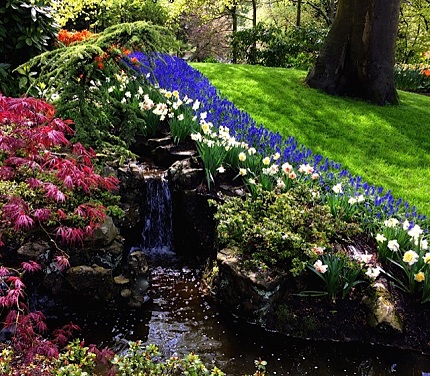
The climate, too, is ideal — cool and moist. The crocuses normally begin flowering mid-March, then the daffodils, then the hyacinths, and finally the tulips, which overlap the daffodils and hyacinths.
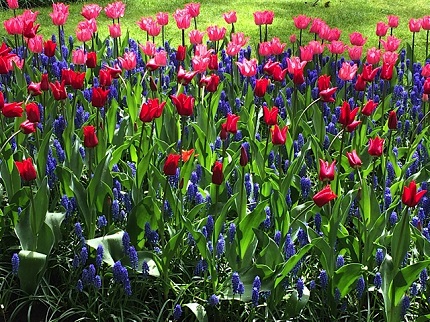
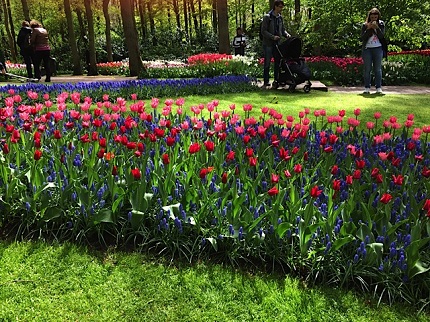
Depending on the year's weather the prime of tulip-time is the end of April — and then it can be over quickly because the growers aggressively cut off the flower heads (mechanically now), which produces larger bulbs and then flowers.
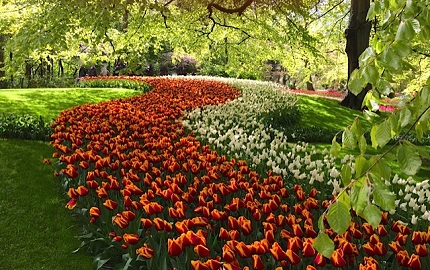
There are also vast areas of hot-houses in which flowers and house plants are grown. Flowers are shipped daily all over the world by air, beginning in the fall when outdoor temperatures cool and they can be brought to bloom in the hot houses.
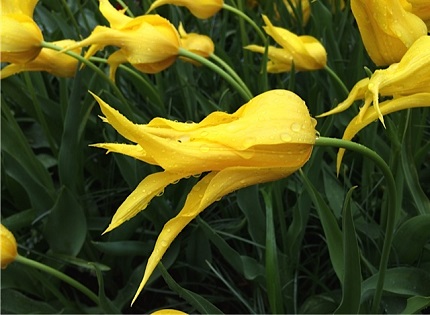
Tulips extend along an amazing spectrum of varieties: early vs. late, cold-tolerant vs. delicate (grown only in hot houses), short vs. tall (4" to 28"), solid-colored vs. multi-colored, basic-colored vs. gradated, single-petaled vs. double and quadruple-petaled, single-headed vs. multiple-headed, solid-colored vs. variegated (striped) petals (and even stems), solid-petaled vs. variegated-petaled, trim-petaled vs. fringe-petaled, round-petaled vs. flute-petaled, short-petaled vs. long-petaled, open-headed vs. closed-headed — and combinations of all the foregoing.
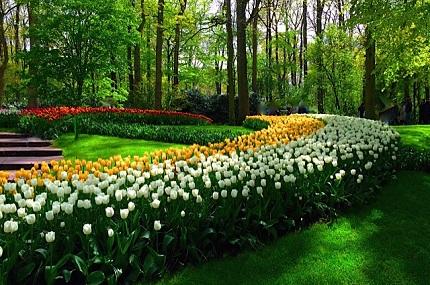
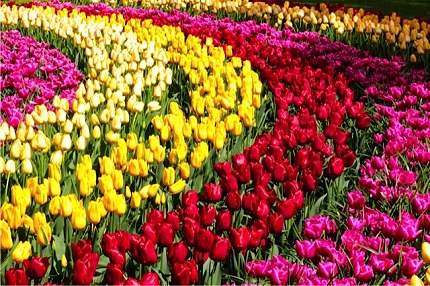
There are more than 3,700 registered varieties of tulips. The names the growers give them (always in English) can be as creative and fascinating as the tulips themselves: Aladdin, Apricot Beauty, Ballade, Blushing Lady, Calypso, Conqueror, Dark Secret, Day Dream, Early Sensation, Eastern Pearl, Fire Bird, First Love, Gala Beauty, Geisha, Halloween, Heart's Delight, Ice Princess, Ivory Glory, Jacqueline, John F. Kennedy, King's Orange, Kiss, Largo, and Laughing Girl to name a few.
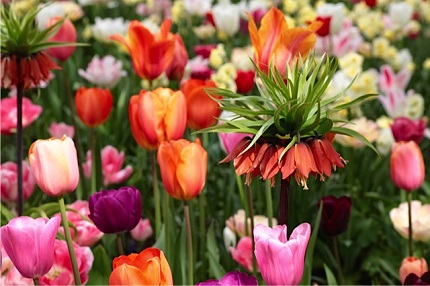
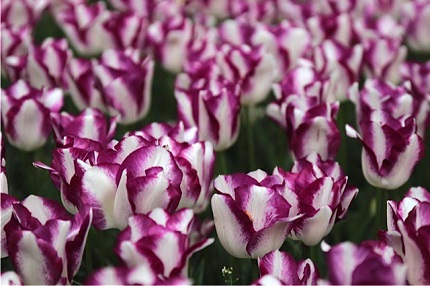
Similarly, you'd love the precious little daffodils with long protruding snouts called Peeping Tom and those with multiple tiny heads grouped together called Tete-a-Tete.
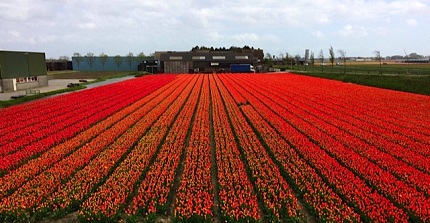
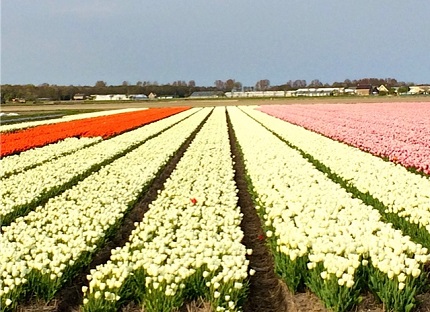

Dian is the author of numerous best-seller fun idea books. Go to www.dianthomas.com to see the specials on her books.
| Copyright © 2025 by Dian Thomas | Printed from NauvooTimes.com |